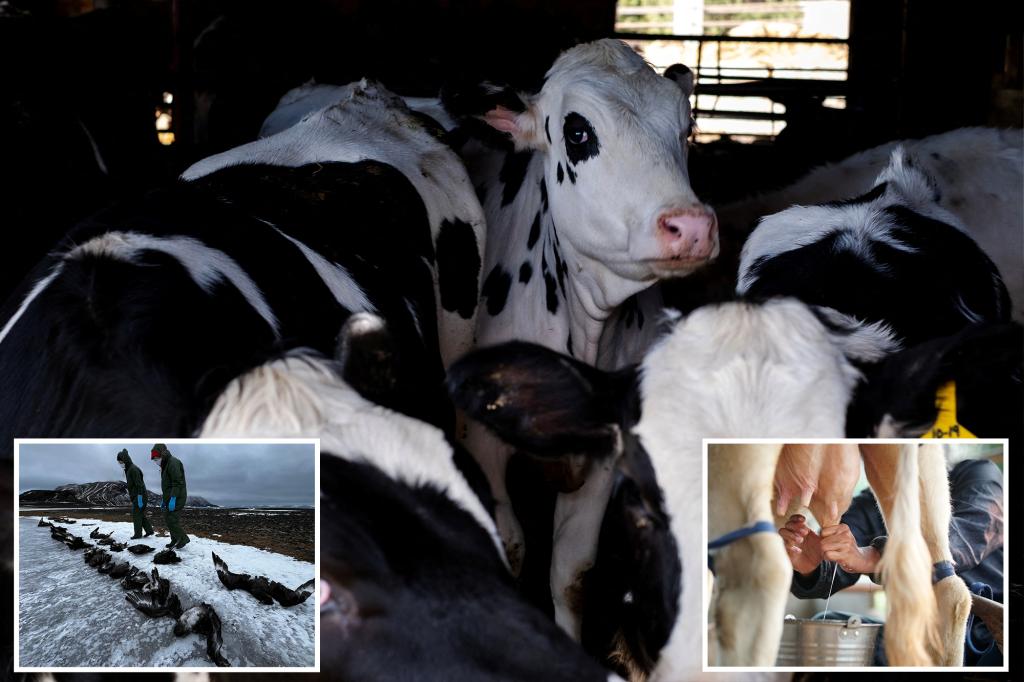The Food and Drug Administration has found traces of bird flu in samples of pasteurized milk, causing concern among consumers about the safety of their milk supply. However, the FDA and the US Department of Agriculture reassure the public that pasteurization effectively kills harmful bacteria and viruses, and milk from sick cows is removed from the commercial supply. The National Milk Producers Federation states that the viral fragments detected in the milk samples are not a threat to human health as the virus is dead. Dr. Scott Roberts from Yale School of Medicine recommends consuming pasteurized milk and eggs to avoid any potential risks.
Dr. Roberts emphasizes the importance of being more aware of potential pandemics and urges preparation to prevent future outbreaks. He mentions the need for planning to deal with such issues in a timely manner to avoid larger problems down the road. Although the pasteurization process eliminates viable viruses from milk and eggs, caution is still advised to minimize the risk of exposure to infections. The threat of pandemics like bird flu is becoming more evident, and measures should be taken to prevent such outbreaks in the future.
The federal government’s response to the H5N1 bird flu outbreaks in dairy cows has been criticized for being slow and lacking transparency in data sharing. The USDA has faced scrutiny for not providing complete information, which has hindered the ability of experts to assess the situation accurately. Dr. Michael Worobey, a professor at the University of Arizona, highlights the importance of allowing global experts to analyze the data to identify potential threats effectively. The spread of H5N1 to herds in multiple states raises concerns about the impact on the dairy industry and public health.
H5N1, a highly contagious virus first detected in 1959, has now been found in dairy cows in several states, including Texas and Kansas, with cases reported in Ohio and North Carolina. The virus has the potential to cause severe outbreaks among livestock, leading to economic losses and posing risks to human health. The recent human case linked to contact with infected dairy cows in Texas demonstrates the need for vigilance in monitoring and controlling the spread of bird flu. Despite these cases, transmission from birds to humans remains rare.
The FDA is currently conducting additional tests on milk samples to determine the extent of contamination and ensure the safety of the milk supply for consumers. As investigations continue, it is essential to follow proper hygiene practices and consume pasteurized products to reduce the risk of exposure to pathogens. Monitoring and surveillance efforts are crucial to prevent the spread of infectious diseases and protect public health. Transparency in data sharing and collaboration among experts globally are vital for effective management of outbreaks and timely interventions to prevent pandemics.
In conclusion, the detection of bird flu in milk samples highlights the importance of stringent food safety measures and preparedness to address potential threats. The emphasis on pasteurization and consumption of pasteurized products is crucial for minimizing health risks associated with contaminated food. Collaboration among experts, transparent data sharing, and continuous monitoring are necessary to control outbreaks and prevent the spread of infectious diseases. As the government works to address the bird flu outbreaks in dairy cows, public awareness and adherence to safety guidelines are key to protecting individuals and communities from potential risks.


